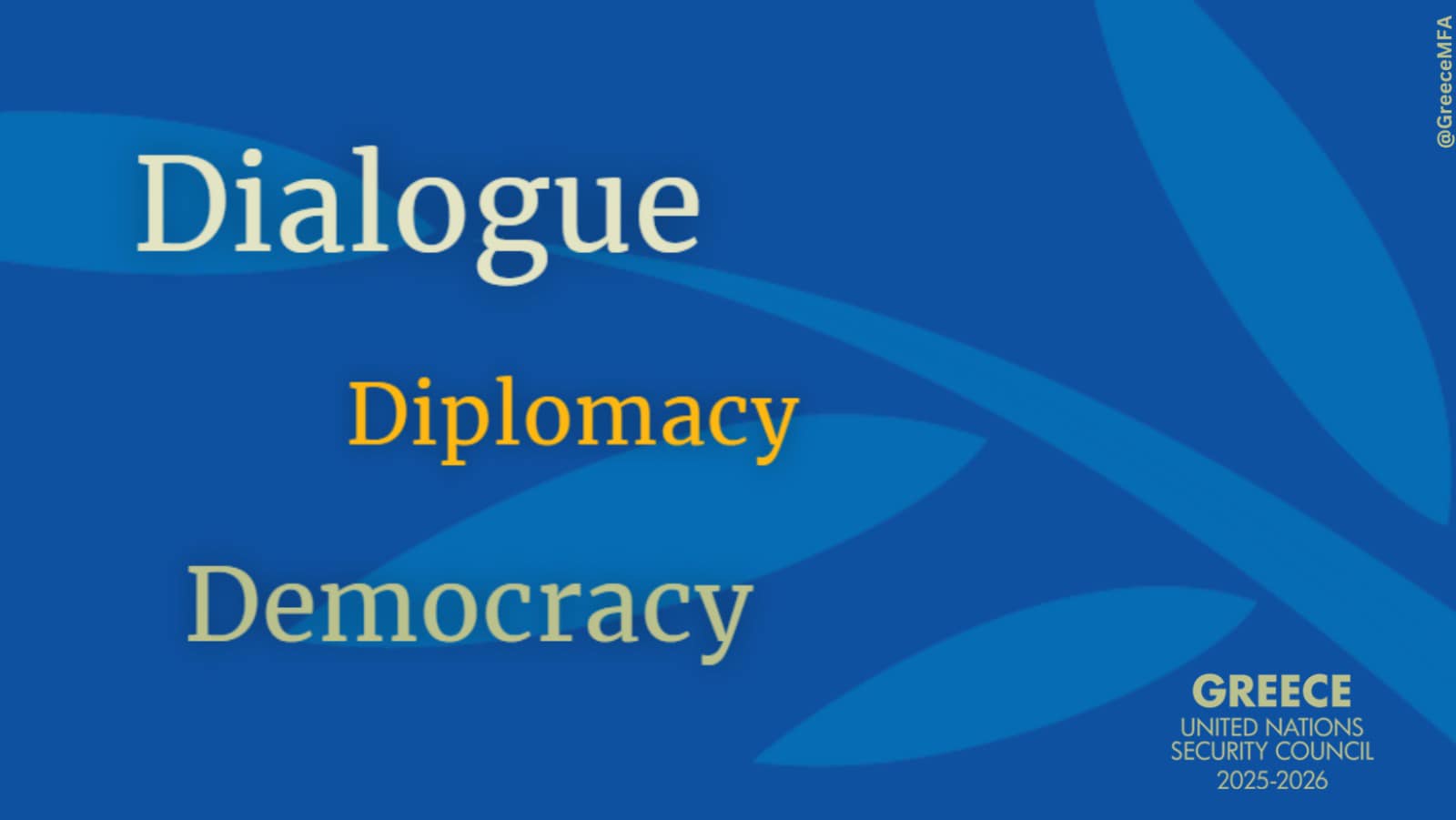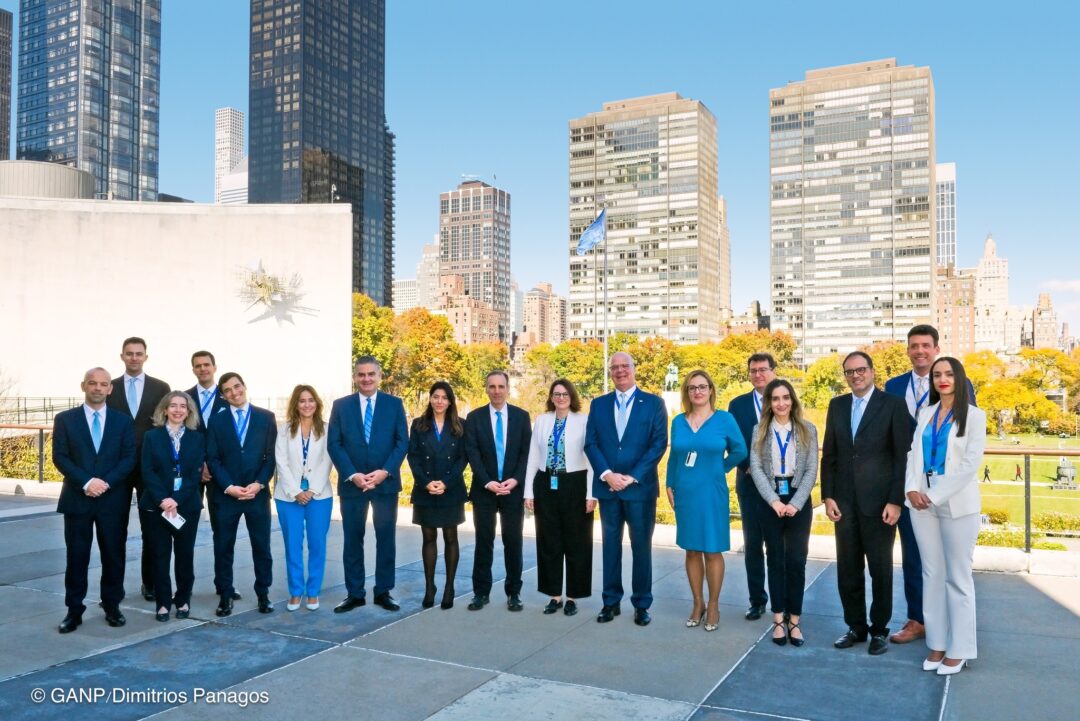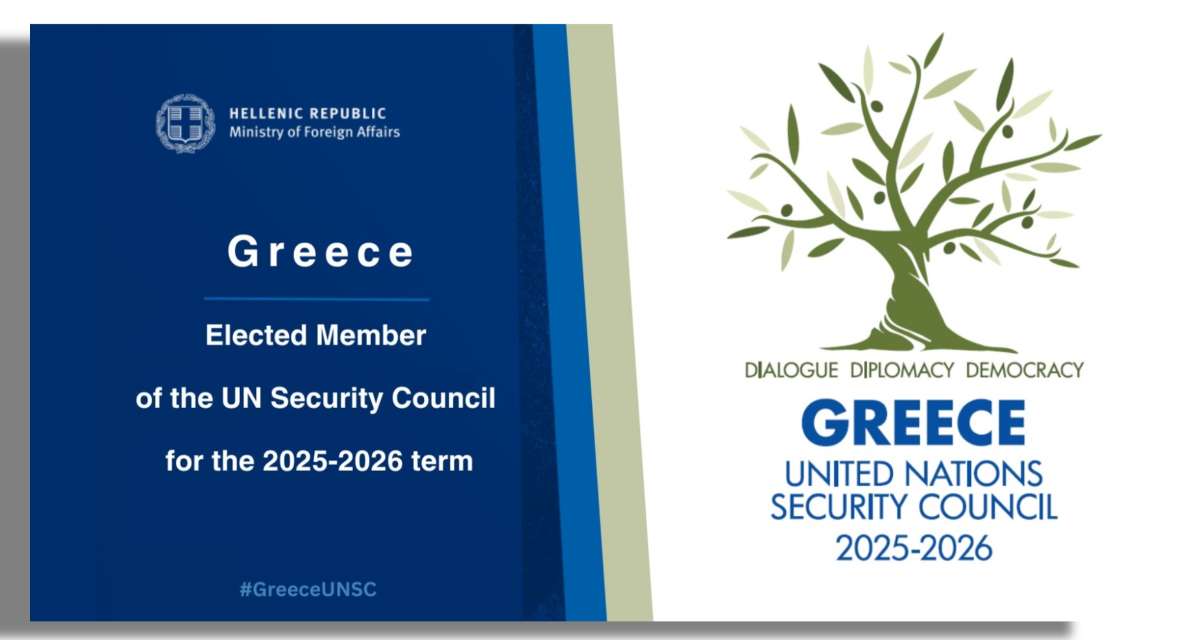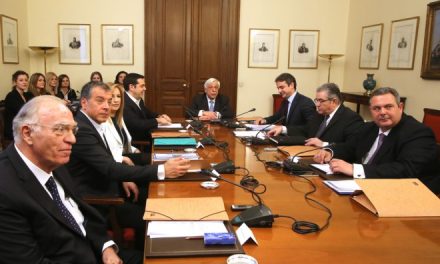Greece has been elected as a non-permanent member of the United Nations Security Council for the 2025-2026 term with the support of 182 states, marking a significant moment in Greece’s diplomatic history and underscoring its commitment to international peace, security, and cooperation. This is Greece’s third time serving on the Security Council, with previous terms during 1952-1953 and 2005-2006.
Greece campaign for its election on the council was founded in the three principles of “Dialogue-Diplomacy-Democracy,” and is dedicated to advancing these principles during its third tenure in the Security Council, with a focus on conflict resolution, international law, climate and maritime security and human rights.
Greece’s participation to the UN Security Council will begin on January 1, 2025. At the same time, Greece has been participating in UNSC meetings with observer status since October 1, 2024.
In his UN address on September 24, Prime Minister Kyriakos Mitsotakis emphasized that Greece’s tenure will be guided by the aforementioned principles of Dialogue, Diplomacy, and Democracy, foundational concepts rooted in Greek heritage and global values. He highlighted the six core priorities underpinning those guiding principles: the peaceful settlement of disputes; respect for International Law and the rules and principles of the UN Charter; women, peace and security; climate, peace and security; children in armed conflict; and, of course, as a seafaring nation, maritime security.
Addressing the General Assembly, Mitsotakis stressed that Greece’s role is particularly relevant given its geographic proximity to regions marked by geopolitical tension, such as the Middle East and Eastern Europe. The Prime Minister called for a ceasefire in Gaza and emphasized the need for a two-state solution for lasting peace between Israel and Palestine. He further highlighted Greece’s steadfast support for Ukraine, emphasizing that Russia’s actions threaten not just Eu-rope but the stability of the international rules-based order.
Beyond addressing current conflicts, Greece aims to foster a more inclusive and representative Security Council. Mitsotakis highlighted the importance of institutional reform, noting that nearly a third of UN member states have never had a seat on the Security Council, which still reflects post-World War II power dynamics. Greece advocates for the inclusion of more permanent and non-permanent members to mirror the geopolitical realities of the 21st century.
Prime Minister Kyriakos Mitsotakis addressed Greece’s relationship with Türkiye, acknowledging past tensions but highlighting improved dialogue, including six meetings with President Erdoğan over the past year and the signing the Athens Declaration to promote peaceful resolution through international law. Mitsotakis pointed out ongoing efforts to resolve maritime disputes in the Aegean and Eastern Mediterranean, emphasizing the need for consistency and mutual cooperation.
However, he also noted that this year marks the fiftieth anniversary of Türkiye’s illegal invasion and occupation of over a third of the territory of Cyprus, and reaffirmed commitment to that country’s sovereignty and territorial integrity.
Greece’s priorities extend to reinforcing multilateralism, drawing from its strong EU ties and unique geopolitical position as a bridge between Europe, North Africa, and Asia. Its emphasis on climate resilience and maritime security reflects both its geographical character and its commitment to tackling environmental challenges that transcend borders. Greece also supports a strong humanitarian stance, focusing on ensuring the protection of women and children in conflict zones, and reinforcing laws that protect human rights and aid.
The country also aims to contribute proactively to key dialogues on issues like Artificial Intelligence, underscoring the need for global regulation to ensure that AI benefits humanity without exacerbating inequality or misinformation. Mitsotakis emphasized that responsible AI governance must involve not only governments but also the tech giants reshaping societies.
With these objectives, Greece enters the Security Council with a dual mandate: to address immediate geopolitical crises and to champion long-term systemic reforms. This ambitious agenda, grounded in democratic values, affirms Greece’s role as a stabilizing force in international relations and reinforces its dedication to a multilateral approach to peace and security.

Greek Foreign Affairs Minister, George Gerapetritis, referring to Greece’s election as a non-permanent member of the UN Security Council in an interview for Greek radio, emphasized that Greece would “proceed based on a single lever, the adherence to International Law.” He explained that “this great diplomatic capital that we have won, this international recognition, and mainly the opportunity we have to talk with all sides, we have achieved exactly because we were very consistent in exercising foreign policy on the basis of international law.”
Greece, he asserted, “would never engage in a policy of exchanges, a utilitarian policy – we are exercising a principled foreign policy.” Finally Gerapetritis underline that the number of votes it received (182 in a total of 188 countries voting) “shows the acceptance our country has on a global level.”
Greece in the Security Council
Greece is one of the 51 founding members of the United Nations Organization. The country participates actively in most of the organs, commissions, organizations, agencies, programs and funds of the UN, abiding by the principles of multilateralism, inclusivity and equality, with respect to the fundamental values of the UN Charter.
The positive vote of 182 Member States as a non-permanent member of the United Nations Security Council for the 2025-2026 terms signals the confidence of the international community in Greece’s active contribution to the efforts to achieve peace and security in the world, based on the principles of international law and the Charter of the United Nations.
During Greece’s previous term, the members of the Council entrusted Greece with the Chairmanship of two important Sanctions Committees, the Committee on Ivory Coast and the Committee on Sudan, as well as the Chairmanship of the Working Group on General Sanctions Issues, and the Vice Chair of the Counter-Terrorism Committee.
Along with Greece, the other four new non-permanent members that will participate in the UN Security Council starting January 1, 2025, are Somalia, Pakistan, Panama and Denmark. The five elected members will begin their term on January 1, replacing Mozambique, Japan, Ecuador, Malta and Switzerland.
Based on the 6 priorities the country has set, and in close cooperation with the other members of the Security Council, the country’s focus will be on unstable areas, trying to work out long-term solutions that will protect the security of peoples and provide the conditions for sustainable peace and development. Particular emphasis will be given on strengthening the role of women in peace and security, but also on the protection of children in armed conflicts.
Greece is committed to fulfilling with dedication and integrity its high obligations as a newly elected member of the Security Council and to make a substantial contribution to the promotion of peace, stability and prosperity in the world.
Here’s a brief overview of Greece’s contributions within the Security Council:
Peacekeeping Operations
Peacekeeping is one of the principal means of the United Nations to maintain international peace and security and help countries torn by conflict, to create conditions for sustainable peace. Today there are 16 ongoing peacekeeping missions, run by the Department of Peacekeeping Operations (DPKO) and manned with approximately 99.000 Military and Police personnel, coming from 114 countries.
Greece has always actively supported and participated in Peacekeeping operations and other related activities throughout the world, from Balkans to Asia and Africa, continuously confirming its commitment to the UN and its mission on maintaining peace around the globe. This commitment to Peacekeeping is expressed through political and financial support and the presence of Greek military officers and troops, together with civilian policemen, in various missions.
Moreover, moving in this direction, Greece established in 2000 MPSOTC (Multinational Peace Support Operations Training Center) recognized by NATO, certified by UN and in 2008 NMIOTC (NATO Maritime Interdiction Operational Training Center) certified by NATO, in order to contribute to the enhancement of a more safe and secure land and maritime environment accordingly.
Disarmament
Since the birth of the United Nations, the goals of multilateral disarmament and arms limitation have been central to the Organization’s efforts to maintain international peace and security. The UN has given highest priority to reducing and eventually eliminating nuclear weapons, destroying chemical weapons, and strengthening the prohibition of biological weapons – all of which pose the direst threats to humankind.
Greece advocates for disarmament, arms control, and non-proliferation, working within the UN framework to promote stability and security in the Mediterranean region. Greece is a party to all International Organizations and Treaties pertaining to disarmament. Greece supports that these Treaties should be universalized and enter into force whenever this is still pending, and that their implementation should be verifiable.
Sanctions
The Council, assisted by other members of the UN and Civil Society commenced a wide discussion on the consequences of sanctions in an effort to render them more efficient and less harmful to weak groups of the population. One of the first steps taken to improve the function of such measures was the formation of independent expert panels and monitoring mechanisms to overview implementation of sanctions. In 2000, Lloyd Axworthy, the then Foreign Minister of Canada, called the SC to a special session where the establishment of the “Informal Working Group on General Issues on Sanctions” was decided, with a mandate to make recommendations for the improvement of sanctions’ effectiveness.
Greece joins those sensitive to the humanitarian impact of sanctions, while recognizing their value for accomplishing political goals without resorting to the use of force, and advocating that more discussion within the Working Group will bring convergence of views in the Council and better results on the ground.

I.L.
Read more:













